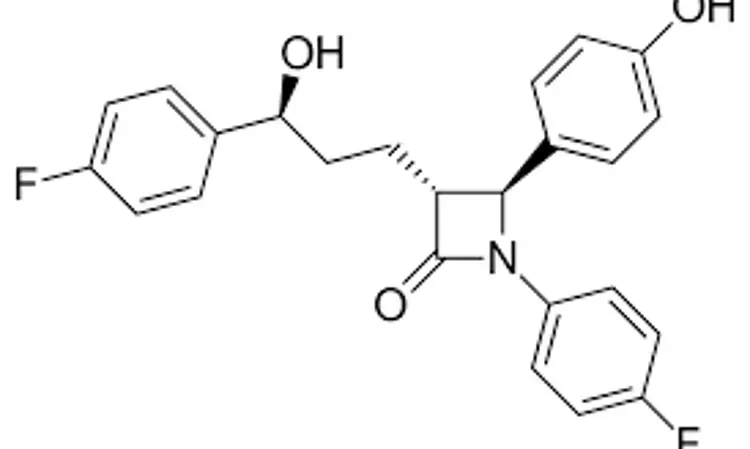- Home
- Medical news & Guidelines
- Anesthesiology
- Cardiology and CTVS
- Critical Care
- Dentistry
- Dermatology
- Diabetes and Endocrinology
- ENT
- Gastroenterology
- Medicine
- Nephrology
- Neurology
- Obstretics-Gynaecology
- Oncology
- Ophthalmology
- Orthopaedics
- Pediatrics-Neonatology
- Psychiatry
- Pulmonology
- Radiology
- Surgery
- Urology
- Laboratory Medicine
- Diet
- Nursing
- Paramedical
- Physiotherapy
- Health news
- Fact Check
- Bone Health Fact Check
- Brain Health Fact Check
- Cancer Related Fact Check
- Child Care Fact Check
- Dental and oral health fact check
- Diabetes and metabolic health fact check
- Diet and Nutrition Fact Check
- Eye and ENT Care Fact Check
- Fitness fact check
- Gut health fact check
- Heart health fact check
- Kidney health fact check
- Medical education fact check
- Men's health fact check
- Respiratory fact check
- Skin and hair care fact check
- Vaccine and Immunization fact check
- Women's health fact check
- AYUSH
- State News
- Andaman and Nicobar Islands
- Andhra Pradesh
- Arunachal Pradesh
- Assam
- Bihar
- Chandigarh
- Chattisgarh
- Dadra and Nagar Haveli
- Daman and Diu
- Delhi
- Goa
- Gujarat
- Haryana
- Himachal Pradesh
- Jammu & Kashmir
- Jharkhand
- Karnataka
- Kerala
- Ladakh
- Lakshadweep
- Madhya Pradesh
- Maharashtra
- Manipur
- Meghalaya
- Mizoram
- Nagaland
- Odisha
- Puducherry
- Punjab
- Rajasthan
- Sikkim
- Tamil Nadu
- Telangana
- Tripura
- Uttar Pradesh
- Uttrakhand
- West Bengal
- Medical Education
- Industry
Ezetimibe safe treatment option for patients who need lipid-lowering treatment

According to a recent study published in BMJ Medicine, ezetimibe is safe in patients who need lipid-lowering treatment.
A study was conducted to determine the harms of ezetimibe in people who need lipid-lowering treatment. Studies comparing ezetimibe with placebo, standard care, or other lipid-lowering agents in people who need lipid-lowering treatment with a follow-up duration of at least six months (or 24 weeks). The relative effects for potential harms of ezetimibe were pooled using random effect pairwise meta-analyses for randomised controlled trials. The evidence from observational studies was narratively summarised. The certainty of the evidence was assessed using the Grading of Recommendation Assessment, Development, and Evaluation.
Results:
- 48 randomised controlled trials with 28 444 participants (median follow-up 34 weeks, range 24-312 weeks) and four observational studies with 1667 participants (median follow-up 282 weeks, range 72-400 weeks) were included.
- The meta-analyses of randomised trials showed moderate to high certainty that ezetimibe was not associated with cancer (relative risk 1.01; 95% confidence interval 0.92 to 1.11), fractures (0.90; 0.74 to 1.10), discontinuation due to any adverse event (0.87; 0.74 to 1.03), gastrointestinal adverse events leading to discontinuation (1.34; 0.58 to 3.08), myalgia or muscular pain leading to discontinuation (0.82; 0.51 to 1.33), neurocognitive events (1.48; 0.58 to 3.81), or new-onset diabetes (0.88; 0.61 to 1.28).
- The narrative analysis of observational studies provided consistent findings.
- No credible subgroup effects were identified for the harm outcomes, including shorter versus longer follow-up duration of trials.
Thus, Ezetimibe results in little to no difference in adverse events or other undesirable effects compared with placebo, usual care or other lipid-lowering agents.
Reference:
Safety of ezetimibe in lipid-lowering treatment: systematic review and meta-analysis of randomised controlled trials and cohort studies by Yang Wang et al. published in the BMJ Medicine.
Dr. Shravani Dali has completed her BDS from Pravara institute of medical sciences, loni. Following which she extensively worked in the healthcare sector for 2+ years. She has been actively involved in writing blogs in field of health and wellness. Currently she is pursuing her Masters of public health-health administration from Tata institute of social sciences. She can be contacted at editorial@medicaldialogues.in.
Dr Kamal Kant Kohli-MBBS, DTCD- a chest specialist with more than 30 years of practice and a flair for writing clinical articles, Dr Kamal Kant Kohli joined Medical Dialogues as a Chief Editor of Medical News. Besides writing articles, as an editor, he proofreads and verifies all the medical content published on Medical Dialogues including those coming from journals, studies,medical conferences,guidelines etc. Email: drkohli@medicaldialogues.in. Contact no. 011-43720751


